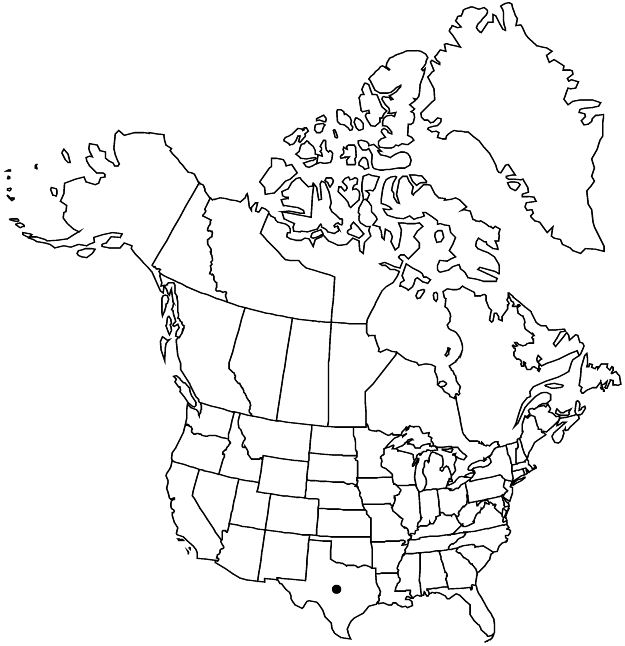Garrya lindheimeri
Pacif. Railr. Rep. 4(5): 136. 1857.
Shrubs or trees 1–3.5 (–5) m, branchlets puberulent, glabrescent. Leaves: blade green, flat, oblongelliptic to broadly elliptic or obovate, 4.5–8 × 2.5–5 cm, length 2 times width, margins flat, smooth, without callose rim, apex rounded and mucronulate, abaxial surface persistently sparsely to densely puberulent-tomentulose, hairs coiling to recurved, adaxial surface glossy, glabrous or glabrate. Aments: staminate 2–3 cm; pistillate loose, internodes 4+ mm, sometimes branched, erect, 2–8 cm; pistillate bracts distinct or connate basally, each usually subtending 1 flower, elliptic to ovate, at least proximal similar in size and shape to distal leaves, minutely puberulent, hairs tightly coiling to strongly recurved. Berries 5–10 mm diam., glabrous, usually glaucous. 2n = 22.
Phenology: Flowering Mar–May.
Habitat: Rocky hills, ledges, cliffs, bluffs, canyons, ravines, along streams, limestone substrates, usually in oak-juniper woodlands.
Elevation: 200–400 m.
Distribution

Tex., Mexico (Nuevo León)
Discussion
Judgments have varied regarding the rank Garrya lindheimeri, as illustrated by the synonymy above. Evidence counter to uniting it with Garrya ovata includes their ecological distinction and allopatry over most of their ranges. Morphological differences between G. lindheimeri and G. ovata are at least comparable to those among some of the California species, which intergrade to a greater extent than these do.
Garrya lindheimeri and G. goldmanii are allopatric in Texas, with the former restricted to the Edwards Plateau and adjacent Lampasas Cut Plain and the latter found only in trans-Pecos Texas. They become sympatric in Coahuila, Mexico, and remain distinct although hybrids and perhaps introgressants may be formed. Garrya goldmanii occurs in more xeric habitats, as indicated by the differences in distribution and ecology in Texas, and the ecological distinction also apparently exists in Coahuila. Their distinction where sympatric implies a degree of reproductive isolation and provides rationale for maintaining both at specific rank.
Selected References
None.